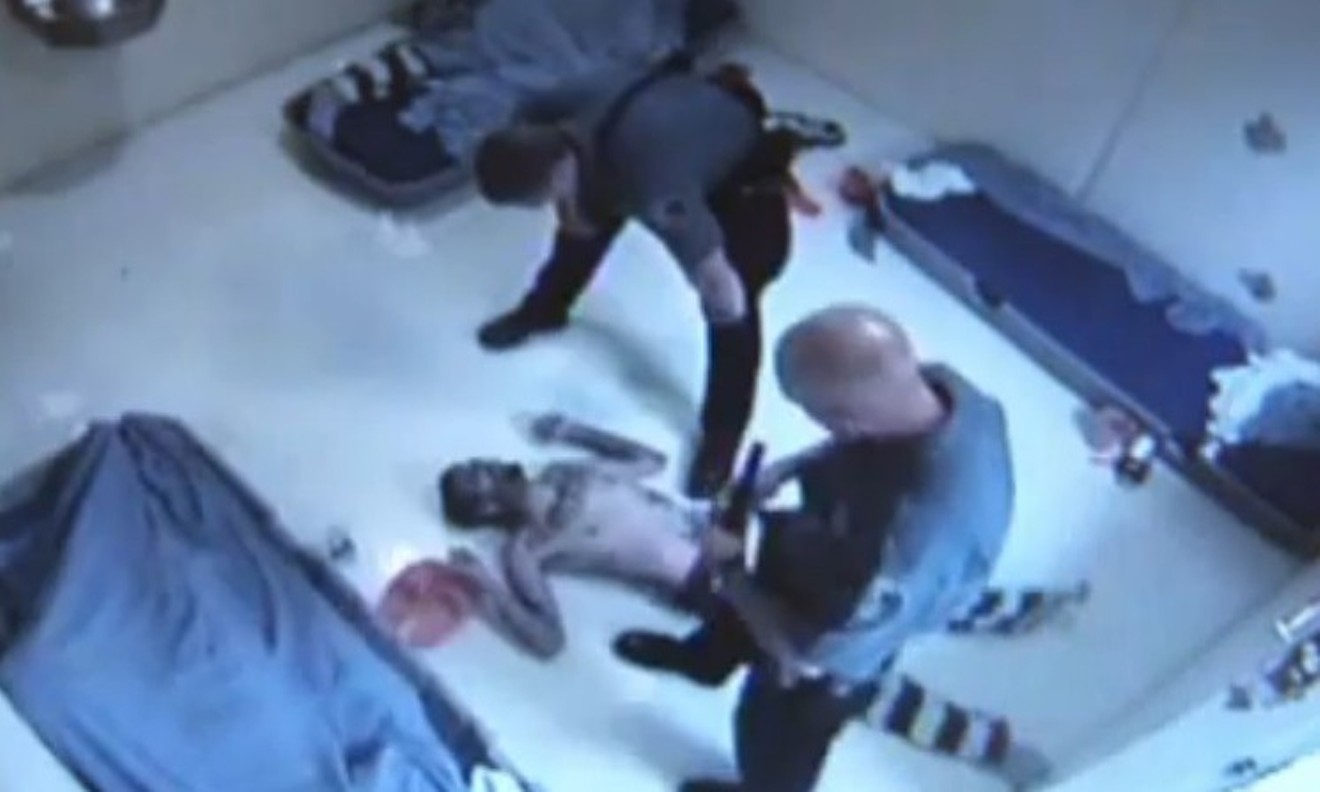The scenario is even more extreme regarding a settlement in the case of Tyler Tabor, a heroin addict who died of dehydration at the Adams County Detention Facility in 2015. The $3.9 million pact, which was inked in June, was supposed to remain confidential, with no announcement that the assorted parties, including Corizon Heath, responsible for $3.7 million, and Adams County, hit for $200,000, had come to a deal with Tabor's family.
Indeed, the only reason we know what happened is because in recent weeks, the judge in the case unsealed settlement documents because of Corizon's failure, so far, to pay even a third of what it owes.
Attorney David Lane, who represents the Tabors, is normally happy to talk about his cases. But when contacted by Westword, he says, "For the first time in history, pursuant to the terms of the settlement agreement, I have no comment."
Corizon and Adams County aren't talking, either, for the same reason. But as originally reported by CBS4, the now-public documents confirm the aforementioned payment amounts and reveal that Corizon has only dispensed $1 million of the $3.7 million owed, supposedly because of what's characterized as a problem with cash flow. The firm asked to put off sending the rest until February 2019, prompting the Tabors to admit to the court that they're "fearful Corizon may be on the verge of bankruptcy given their inability to pay."
The lawsuit over Tabor's death was filed in June 2016 and included a press conference as well as a release of a video that juxtaposed surveillance footage from Tyler's final days with scenes of his heartsick loved ones and a separate clip that castigated companies like Corizon for allegedly putting profits over adequate health care. They're shared here.
According to the suit, also accessible below, Tabor was busted on May 14, 2015, by a police officer in Thornton "on two outstanding warrants in Larimer County for failure to comply with probation conditions in connection with a misdemeanor harassment conviction and failure to appear on a misdemeanor charge of driving under restraint."
From the outset of Tabor's incarceration, Lane said, his symptoms were evident — but he wasn't taken to see a doctor. Instead, nurses administered what he called "the easy fix: Gatorade, since one of the serious problems with withdrawal is dehydration. But that only works if you can keep it down, and Tyler couldn't. And anyone could see what was happening to him. We have videos of Tyler falling down in his cell, crawling to the emergency button and pushing it. And still they didn't put him on an IV." Instead, he was provided more Gatorade and medication that included Clonidine, Hydroxyzine, Acetaminophen, Pepto-Bismol, Loperamide and Promethazine.
Here's the first video released in conjunction with the lawsuit, titled "The Tyler Tabor Story."
On May 16, the lawsuit states, Tabor's blood pressure went from 110/71 at 2:29 a.m. to 83/60 at 11:38 p.m., and another two-liter serving of Gatorade didn't improve the situation. At 2:20 a.m. the following morning, he was taken to a treatment area in a wheelchair because he was too weak to walk. But he was subsequently returned to his cell, where his physical deterioration continued.
Here's an excerpt from the suit featuring two named defendants, Nurse Cheryl Groothuis and Adams County Deputy Michael Brown.
At approximately 4:10 a.m. on May 17, 2015, Nurse Groothuis and Deputy Brown visited Tyler’s cell to administer medication. Tyler had difficulty standing and fell multiple times in Nurse Groothuis’s and Deputy Brown’s presence. Nurse Groothuis handed Tyler his medications, but again his hands were so cramped that he could not hold them. As Tyler let go of the wall he was holding on to for balance to retrieve the dropped medication, he fell to the floor. Nurse Groothuis attempted to help Tyler to his feet, but was unable to do so. Deputy Brown entered the cell and helped Tyler into his bed, where Nurse Groothuis gave Tyler the medication he had dropped. Nurse Groothuis did not provide any further treatment or check Tyler’s vitals. She left the cell.Forty minutes later, Tabor pressed the emergency button again, but the call was "essentially ignored," the lawsuit claims. Then, at 5:20 a.m., he crawled to the cell door, vomited on the floor and passed out while lying on his back.
Here's another video issued in conjunction with the lawsuit, on the subject of "prison profiteering."
Tabor was discovered five minutes later by another defendant, Deputy Cory Engel. Tabor is said to have "had a gray color to him and was having difficulty breathing. Deputy Engel attempted to speak to Tyler and kicked Tyler a few times, but Tyler could only moan in response."
That finally prompted a call for emergency medical services, but it was too late. Tabor was pronounced dead at 6 a.m.
The following October, Dave Young, district attorney for the 17th Judicial District, announced in a letter to Adams County Sheriff Mike McIntosh that he hadn't found any criminal wrongdoing in the Tabor case.
Even so, Lane considered the series of events that led to Tabor's death as a condemnation of Corizon, "which has been sued repeatedly. These private health-care companies are so profit-driven, and they view their client base as high-volume, low-asset clients. To save twenty bucks, they're willing to risk people's lives."
Those short-term savings have proven to be extremely expensive — and may be putting Corizon's survival at risk, too.
Click to read the original Tyler Tabor complaint.













